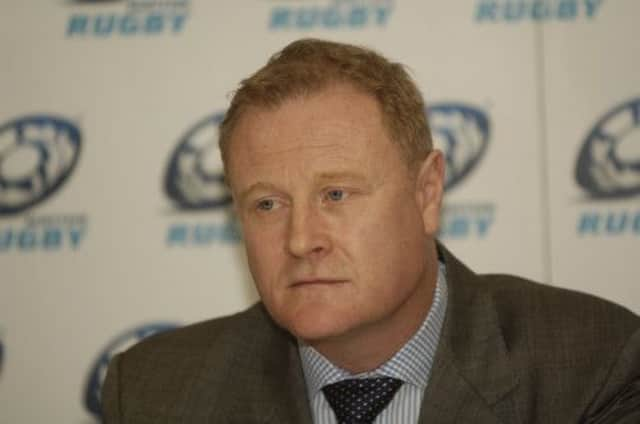Martin Currie sees first loss after China setback


A £7.7 million profit before tax, interest and other items in 2011 turned into a £9.3m loss last year. The statutory profit after tax fell from £1.6m profit to a £12.3m loss.
Chief executive Willie Watt said the loss – believed to be its first since the firm was founded in 1881 – was largely due to a “conflict of interest” issue which led to the firm paying out millions in compensation and being fined for fraudulent use of client funds.
Advertisement
Hide AdAdvertisement
Hide AdWatt said the board had decided to accept the full loss on the accounts to avoid making big job losses.
“We took the view that we could have shrunk the loss if we had reduced our cost base significantly. We would have made significant redundancies, but we took it on the chin,” he said.
The conflict issue took a big chunk out of the China investment book and there was a fall in assets under management from £5.6 billion to £4.7bn. At one point, assets under management dropped to £4.2bn. Group revenue also fell, from £65.5m to £33.8m.
The problem in China, revealed by The Scotsman’s sister title Scotland on Sunday in January 2011, led to Chris Ruffle, a long-serving manager in Asia, leaving the business and $20m (£12m) being set aside to compensate clients.
The firm was subsequently fined £8.6m by British and US regulators. It was found guilty of wrongly advising a US mutual fund, the China Fund Inc, to invest £15m in a transaction that rescued a struggling Chinese hedge fund. Both funds were managed by Martin Currie’s Shanghai office.
The United States Securities & Exchange Commission imposed a £5.1m penalty and the UK’s Financial Services Authority £3.5m – the largest fine ever imposed by the FSA in a conflict of interest case.
Watt said that “performance problems” in 2008-9, principally involving the China Fund, led to redemptions by clients. He admitted that some big clients had been lost after withdrawing all their funds. However, he said the trading loss was a “one-off” and that the firm was now profitable and rebuilding its assets under management. It is expected to be in profit this financial year.
Revenue is up 50 per cent year on year and there have been four consecutive quarters of positive net sales. Assets under management at the end of last month climbed to £5.5bn, up 28 per cent on the low point.
Advertisement
Hide AdAdvertisement
Hide AdWatt said the firm was sticking to the strategic plan drawn up in 2010, which he said was delivering. Staff numbers have barely changed, with 45 investment managers on the payroll, including some new hires.
Figures show there had been a notable improvement in trade since the second half of 2012, and 78 per cent of strategies were ahead of benchmark over three years, a key measure of performance. The ownership structure has changed over the years so that employees, formerly 100 per cent owners, now hold just under half the voting shares.
Watt said: “The last couple of years have been tough … The important thing is to have enough capital in the business and it is appropriate that the shareholders have to take some dilution. I often get asked about a stock market listing but I don’t think small investment management companies should be listed because performance is too volatile.”
He said income had also been affected by large companies including BP and Royal Bank of Scotland paying lower or no dividends.